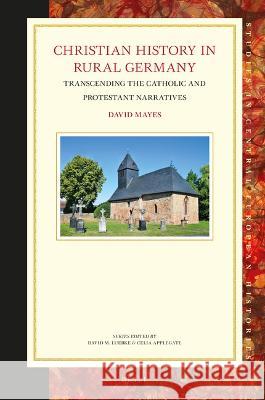Christian History in Rural Germany: Transcending the Catholic and Protestant Narratives » książka
Christian History in Rural Germany: Transcending the Catholic and Protestant Narratives
ISBN-13: 9789004526488 / Angielski / Twarda / 2022 / 484 str.
Surely, Christian history in Germany principally followed the outlines of a Catholic and Protestant narrative, right? On the contrary, for Hesse, Hanau, and Fulda this dominant framework largely obscures the historical experience of most Christians, specifically rural Christians. The rural Christian narrative, animated for more than a millennium by agricultural and communal forces, principally followed an indigenous path characterized by long-term surges and setbacks. This path eventually bifurcated not in the 1517-1648 period but rather in the wake of the 1648 Peace of Westphalia, and it did so not into Catholic and Protestant storylines but rather into those Christian corpora (Gemeinden) which maintained their local civil-sacred unity into the twentieth century and those which lost that unity after succumbing to Westphalia's divisive effects.











